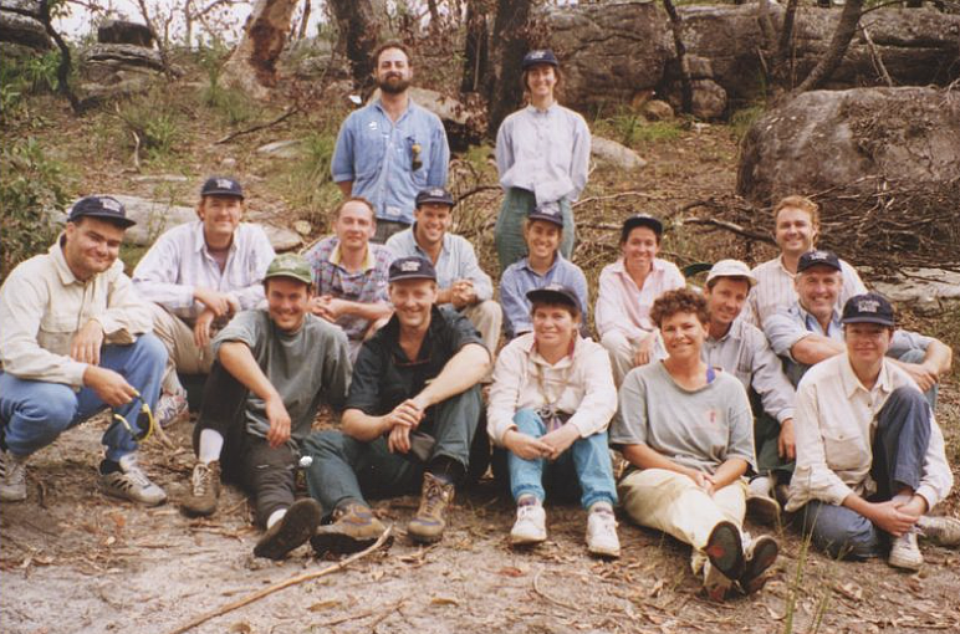
ICDA and BoardPro partnership unlocks digital governance tools for not-for-profits nationwide
Posted on 10 Dec 2025
Adele Stowe-Lindner, Executive Director, Community Directors The Institute of Community Directors…
Posted on 30 Jan 2024
By Greg Thom, journalist, Institute of Community Directors Australia

While welcoming the ACCC inquiry into supermarket pricing and practices, some sector organisations are careful not to bite the hand that feeds those who rely on them for food and groceries.
The decision by Prime Minister Anthony Albanese to finally pull the trigger on the widely predicted Australian Competition and Consumer Commission (ACCC) inquiry into supermarket prices has received widespread support.
With the cost-of-living crisis continuing to bite, charities and not-for-profits have for months been raising the alarm that many disadvantaged Australians are struggling to put food on the table.
Food and grocery prices have been under the microscope, with accusations supermarket giants have pocketed massive profits at the expense of farmers, suppliers and consumers.
St Vincent de Paul’s manager of policy and research, Gavin Dufty, said whether the big supermarket chains were ultimately found guilty of price gouging or not, the ACC inquiry was very timely and necessary.
“There are many segments of the community that are concerned and don’t know why grocery prices are going the way they are,” he said.
“A little bit of sunshine can’t hurt anyone in this area.”
Mr Dufty said factors such as high interest rates and the ongoing pandemic recovery meant many people were feeling unsettled.
“These types of inquiries help restore trust. They are really important.”
Sector organisations that have found themselves on the frontline of providing relief to those in need, such as Anglicare, have also welcomed the increased scrutiny of supermarket pricing and its impact on the soaring cost of living.
Anglicare acting executive director Maiy Azize recently told the Community Advocate that supermarkets shouldn’t be allowed to line their pockets at the expense of people doing it tough.
“Anglicare Australia’s Living Costs Index shows that people are already struggling to keep up with spiralling rent and childcare costs. They can’t afford to pay more for food and groceries as well.
“They [supermarkets] should be passing on savings to their customers – and they need to come clean about how they price their products,” she said.
“Food is an essential service and should be affordable to all.”
Hunger relief charities also sympathise with the plight of those suffering from cost-of-living pressures, but their relationship with the big supermarket chains is more complicated.
Sector organisations such as SecondBite, OzHarvest and Foodbank rely heavily on donations of excess food from Coles and Woolworths. They distribute these donations, which would otherwise be destined for landfill, through charity partners as meals and goods to many of the same Australians facing inflation-driven prices at supermarket check-outs.
Woolworths has partnered with Foodbank for more than two decades.
In August 2023, Woolworths announced a $9 million financial boost for hunger relief charities including Foodbank and OzHarvest to help deliver an extra 13 million meals to struggling Australians.
Woolworths Group CEO Brad Banducci said at the time the meals were in addition to the 28 million meals already created in Australia through the company’s food diversion initiatives, in which excess edible food from supermarkets and distribution centres is collected daily by food relief charities.
“At the heart of our business, we exist to feed Australians and New Zealanders, and we don’t believe that should stop once you leave our stores,” said Mr Banducci.
“Our supermarkets donate excess food to local charities each week; however, with more people on both sides of the Tasman experiencing food insecurity for the first time, it's clear that more is needed to provide immediate relief.”

SecondBite CEO Daniel Moorfield, whose organisation has partnered with Coles for 12 years, acknowledged the concern in the community over supermarket prices.
“We welcome Coles’ collaboration with the ACCC’s examination of the factors that affect prices in the grocery supply chain,” he said.
Mr Moorfield also highlighted the supermarket giant’s vital role in helping to feed disadvantaged Australians.
“With the demand for food relief increasing, the ongoing support of Coles enabling us to provide food to those in need has never been more impactful.”
Mr Moorfield said in the past financial year, Coles redirected 17.5 tonnes of quality surplus food to SecondBite that was used to provide more than 35 million meals to those who needed them most.
“We couldn’t be more grateful for our 12-year partnership with Coles, whose support has been crucial to achieving so much in our fight against hunger and food waste.
“Additionally, we greatly appreciate the dedication of Coles staff, who work hard to support us through fundraising and volunteering efforts."
High-profile celebrity food writer, TV personality and SecondBite ambassador Matt Preston was the face of Coles’ 2023 Christmas Appeal.
Coles’ chief operations and sustainability officer, Matt Swindells, said the annual appeal raised vital funds for SecondBite so it could continue to meet the demands of its food relief charity partners in communities throughout Australia.
“Funds raised will help SecondBite to put delivery vans on the road, provide refrigeration at its warehouses for meat and vegetables and enable its dedicated team of staff, volunteers and community partners to help vulnerable Aussies this Christmas and beyond,” he said.
St Vincent de Paul Society’s Gavin Dufty acknowledged the important work carried out by food relief charities in combatting food waste and helping feed cash-strapped Australians but said it was important to avoid normalising what is a failure of mainstream food distribution systems.
“We don’t want food waste and we should be able to use our resources wisely,” said Mr Dufty.
“But to mainstream it as the only option … the next stop is food stamps and that’s not a society we want to live in.
“Food is an essential service and should be affordable to all.”

Despite the goodwill generated by supermarkets’ efforts to reduce food insecurity, the ACCC probe into the sector is just the latest to be announced, and others include:
Of all the inquiries underway, the ACCC’s has the most wide-ranging powers in its arsenal to get to the bottom of the fairness or otherwise of supermarket pricing practices.
A key plank of its investigation will be examining the difference between the prices farmers and producers receive at the farm gate and what consumers pay at the checkout.

The competition regulator will also look at issues related to the rise of online shopping, changes in technology, and loyalty programs.
The federal government said it would provide a funding boost to the independent consumer organisation Choice to enable it to provide shoppers with a clear understanding of how supermarkets are performing via quarterly price comparison and transparency reports.
Charities Minister Andrew Leigh said the federal government needed to take action to help those in need.
“Australia’s charities help the most vulnerable, and right now, it’s low- and middle-income Australians who are copping the worst of the cost-of-living squeeze.
“That’s why Labor’s competition reforms are so important – not just for productivity, but for equity too,” he said.
Mr Leigh said the ACCC supermarket inquiry and the Choice quarterly supermarket price monitoring follow hot on the heels of the Albanese Government’s other competition reforms:
“By putting downward pressure on grocery prices, we not only help the neediest, but we also help the helpers,” said Mr Leigh.
“Right now, food relief charities are overstretched, due to high demand from people on fixed incomes and the working poor. By ensuring that grocery sector is delivering the best possible prices to consumers, we help take pressure off the food relief sector.”

ACCC chair Gina Cass-Gottlieb promised to pull no punches.
“We know grocery prices have become a major concern for the millions of Australians experiencing cost-of-living pressures,” she said.
“We will use our full range of legal powers to conduct a detailed examination of the supermarket sector, and where we identify problems or opportunities for improvement, we will carefully consider what recommendations we can make to government.”
Not everyone is convinced there is a smoking gun to be found amid the multiple inquiries into supermarket pricing and practices.
Former Labor government minister Graham Richardson questioned the "hype" surrounding supermarket prices amid the cost-of-living crisis.
“As far as I’m concerned, they’ve got to make a profit, they’re not in there as a charity."
Sector welcomes spotlight on supermarket prices

Posted on 10 Dec 2025
Adele Stowe-Lindner, Executive Director, Community Directors The Institute of Community Directors…

Posted on 10 Dec 2025
The Australia Institute has called on the federal government to force Australian businesses to be…

Posted on 10 Dec 2025
Economic empowerment is essential to enabling recovery, restoring agency and preventing future…
Posted on 10 Dec 2025
A long-time advocate for rough sleepers in northern New South Wales has been named her state’s…

Posted on 10 Dec 2025
What a year 2025 has been, particularly at a national level where the Parliament and politics as we…

Posted on 10 Dec 2025
Anyone working in an organisation knows it: meetings follow one after another at a frantic pace. On…

Posted on 10 Dec 2025
As a qualified yoga instructor who learned the practice in her hometown of Mumbai, Ruhee Meghani…

Posted on 10 Dec 2025
Community Directors trainer Jon Staley knows from first-hand experience the cost of ignoring…

Posted on 10 Dec 2025
Stressed, overwhelmed, exhausted… if you’re on a not-for-profit board and these words sound…

Posted on 10 Dec 2025
The Institute of Community Directors Australia trains over 22,000 people each year, which gives us…

Posted on 09 Dec 2025
The late Sir Vincent Fairfax is remembered as a business leader, a chairman of AMP, and an active…

Posted on 08 Dec 2025
A pioneering welfare effort that helps solo mums into self-employment, a First Nations-led impact…